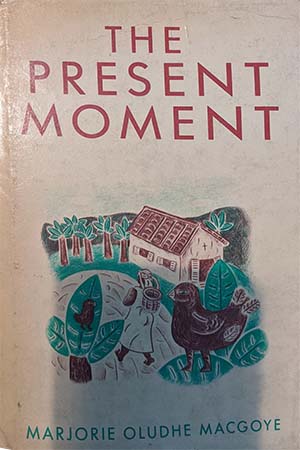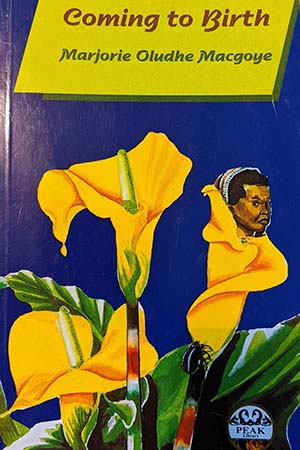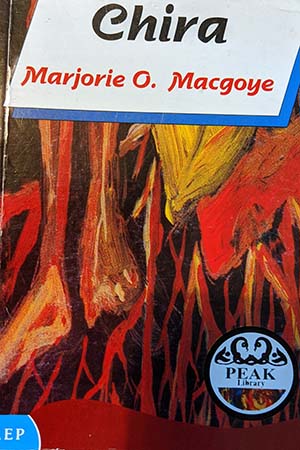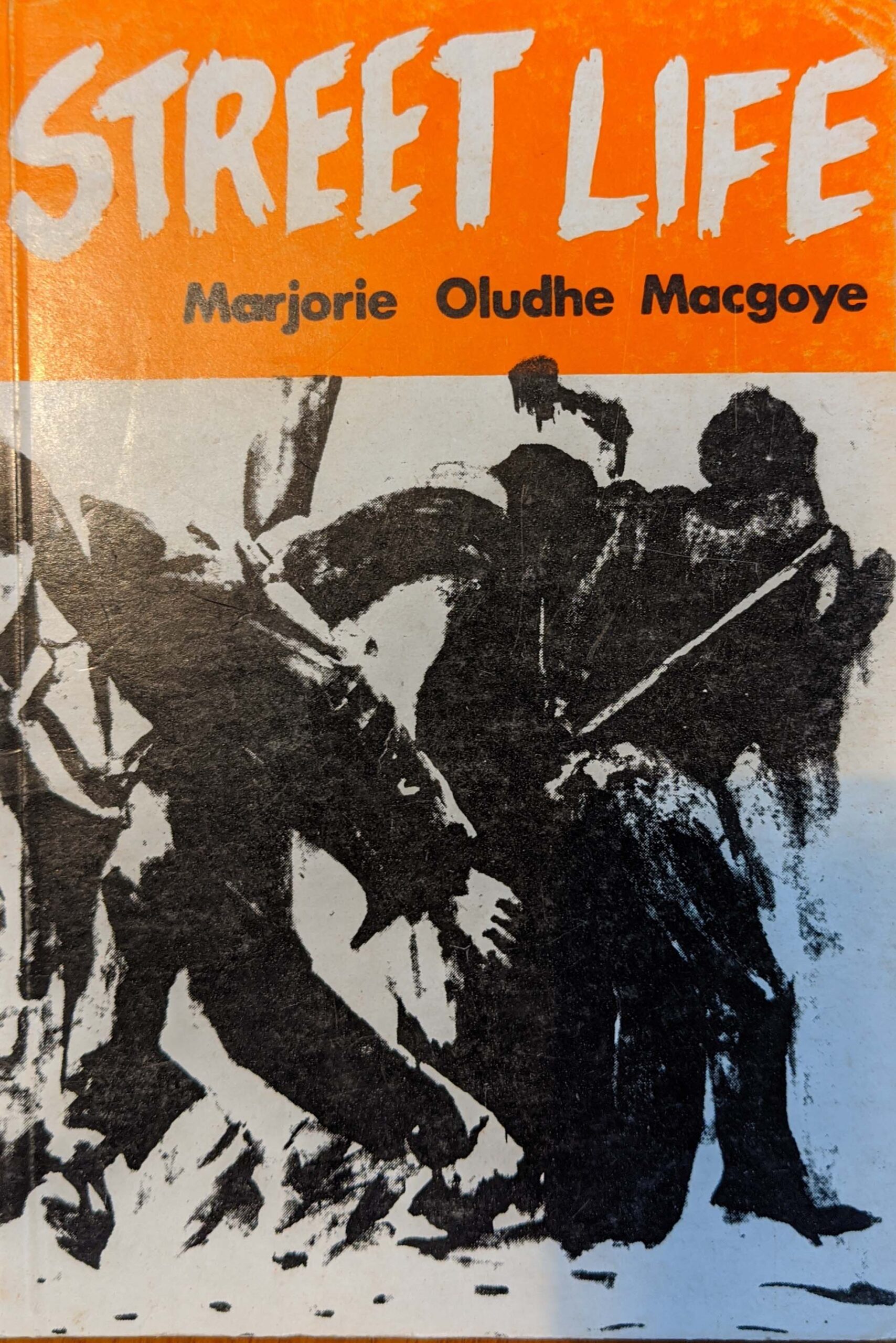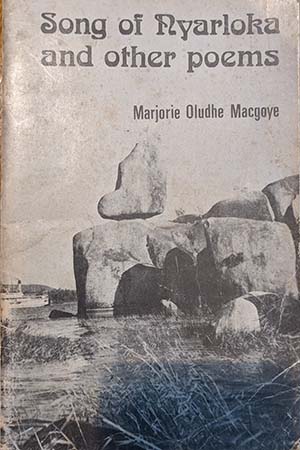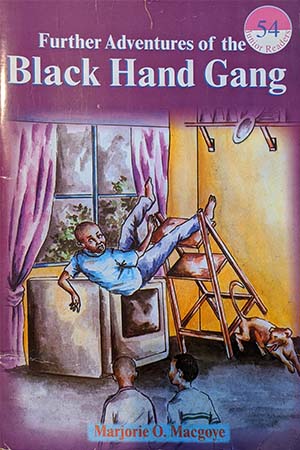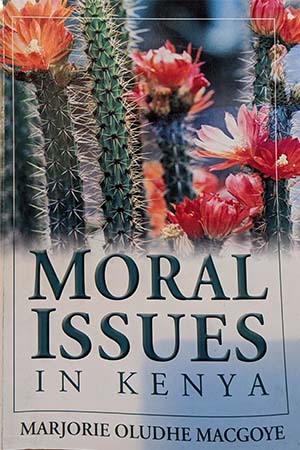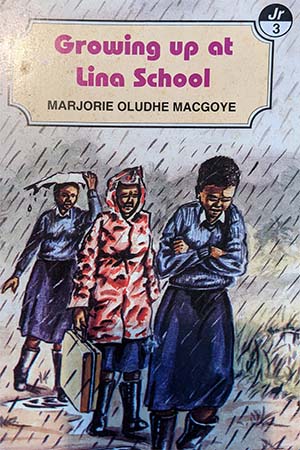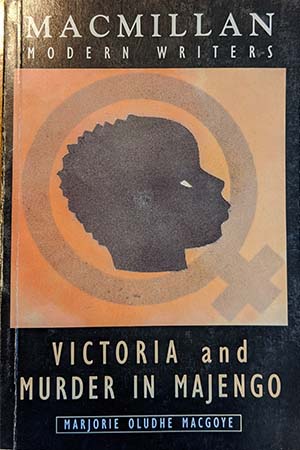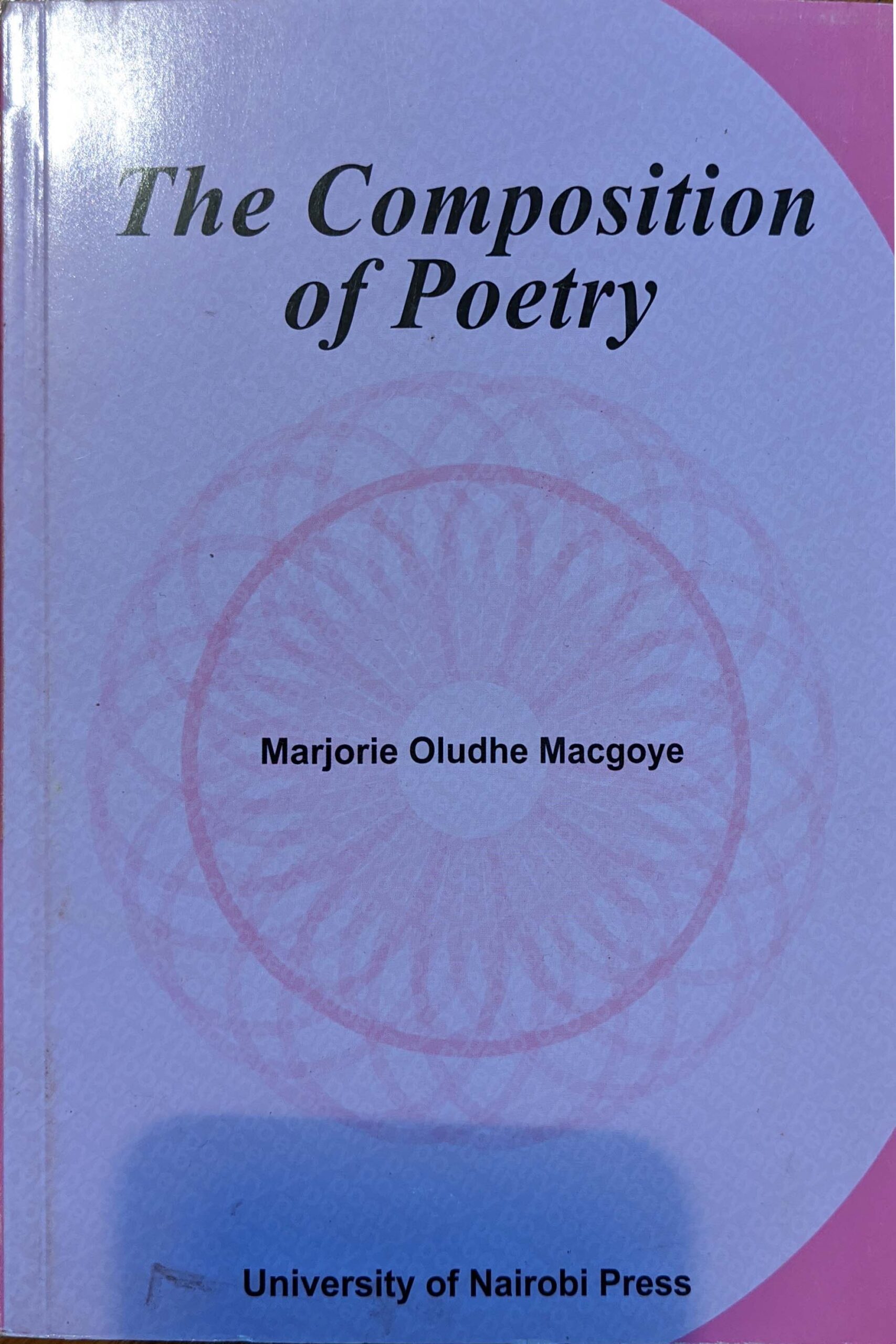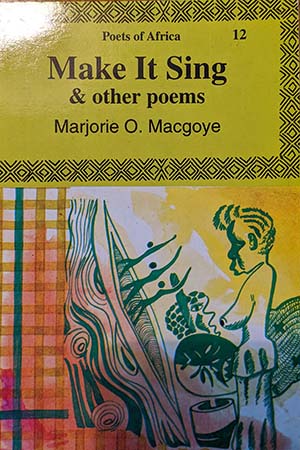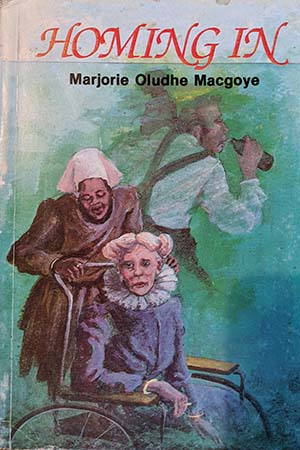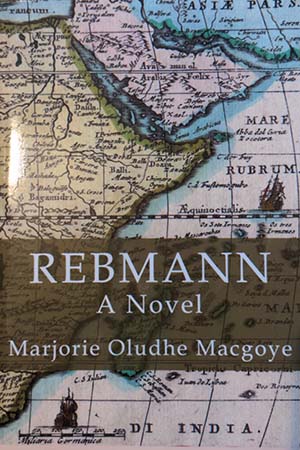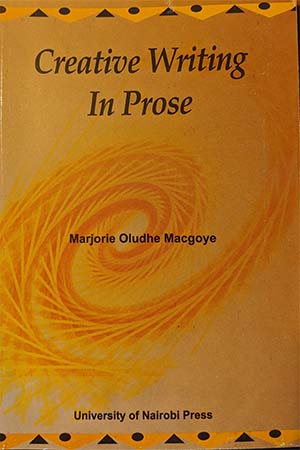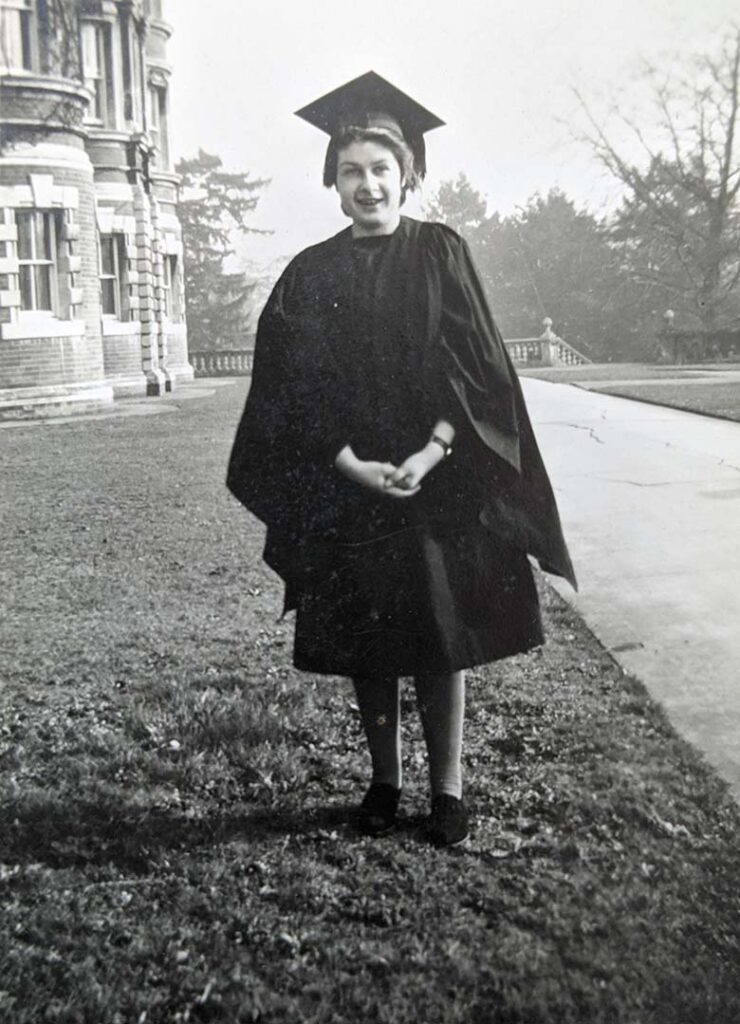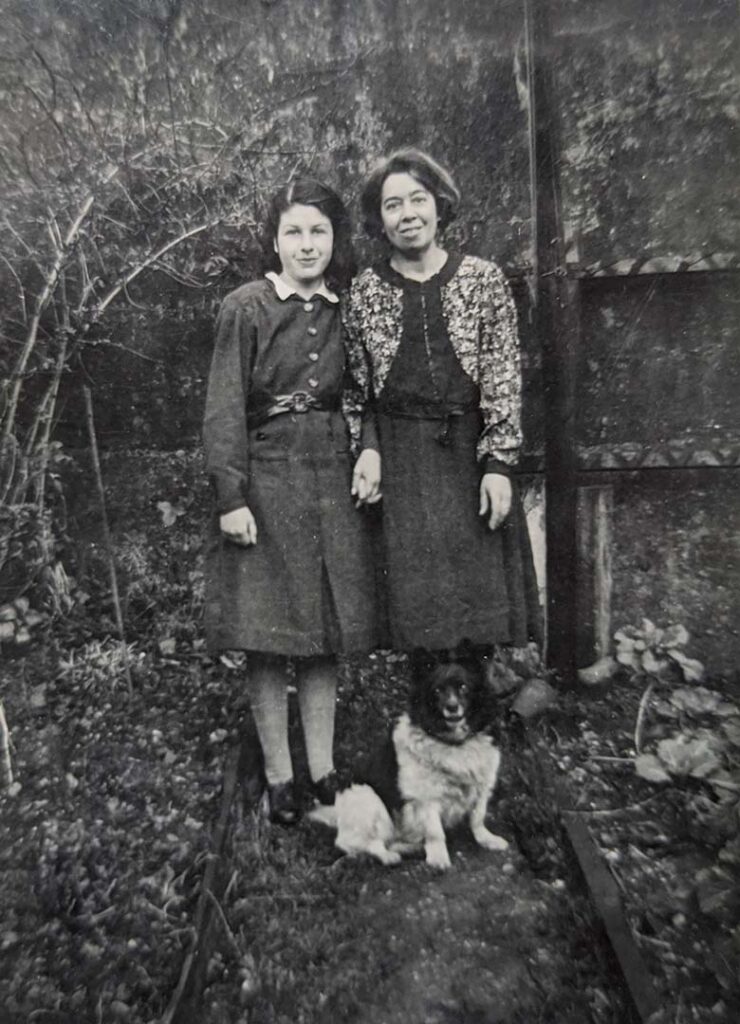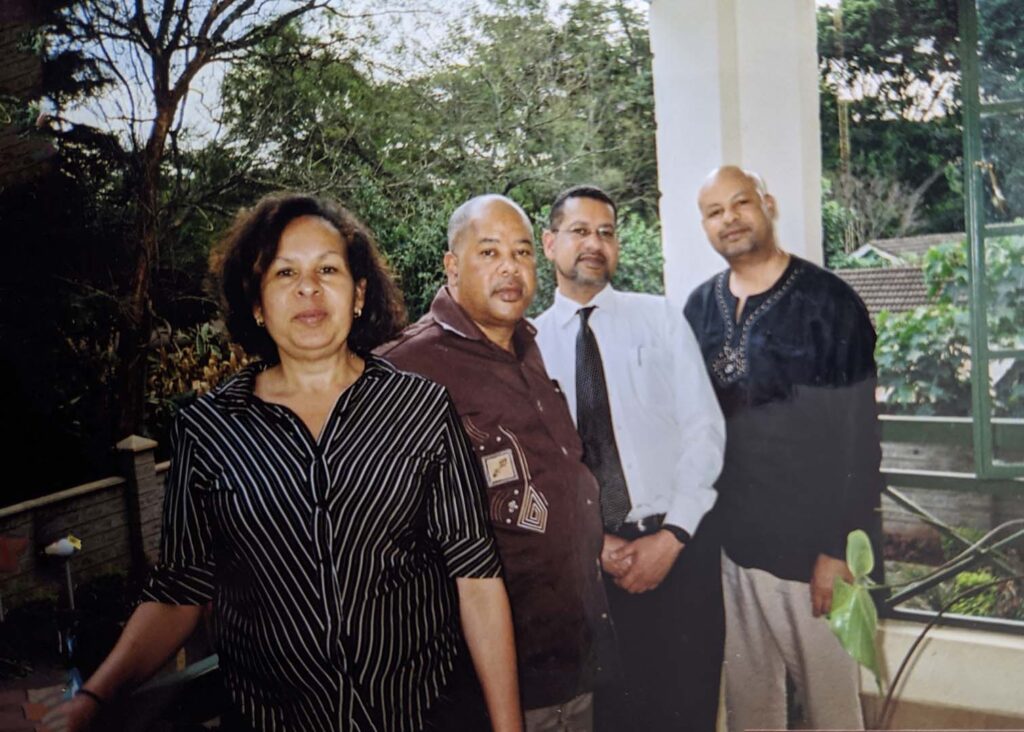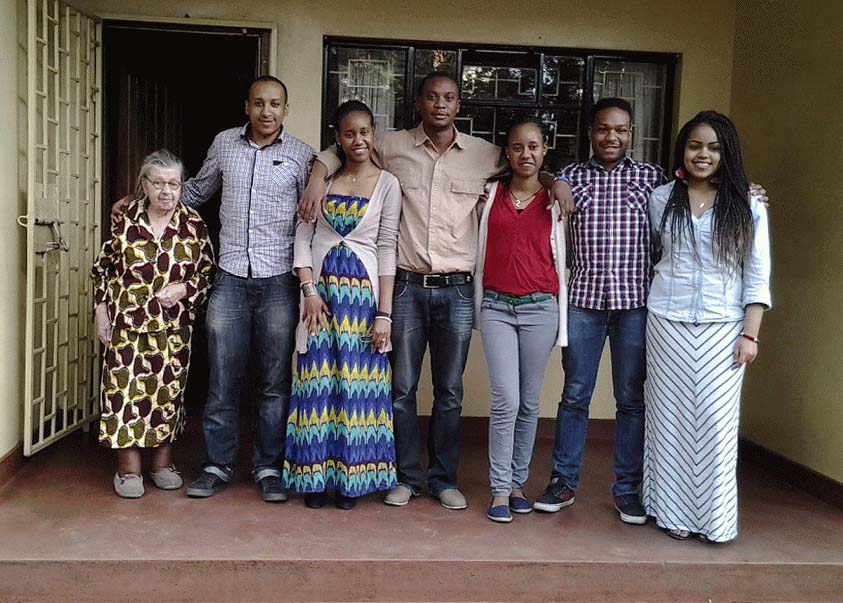Those were happy years. Tanzania was very keen on creating jobs for Tanzanians and Mom had to train a Tanzanian, Clara, to take over from her at the end of her contract. She was offered a job by Maneklal Rughani in Nairobi to run one of the TBC outlets,. It was while here that she started poetry readings and set up the Penguin section of the bookshop, which I recall was opened by Graham Hyslop who had returned to Nairobi. Marjorie retired in 1981 when the owners of SJ Moore closed it down to concentrate on their flagship store at the newly-built Sarit Centre. Mom was able to do more writing and was also the representative for East and Central Africa for an American Publisher. This enabled her to travel all around Kenya, Uganda and Tanzania. She also visited Malawi, Ethiopia and Zimbabwe as part of her role in sales for the publisher. This only lasted a few years but she was really in her element and these experiences enlivened her.
It was during this time that she interacted once more with David Rubadiri, who was lecturing at the University of Nairobi, as well as Ngugi wa Thiong’o, Jonathan Kariara, Pheroze Nowrojee, Francis Imbuga, Micere wa Mugo and many others.
One of the more ardent poetry readers and writers Marjorie met in Nairobi when she came back from Dar was a young university student, John Sibi Okum. They soon became very close and the family regarded John as an adopted son and brother.
In 1986 Marjorie spent several months in the UK visiting her relatives and while there she was awarded the Sinclair prize for fiction for ‘Coming to Birth’. It was a proud moment to be able to take her father and stepmother Doris for the presentation. Marjorie made her last trip to the UK in 1989 to see her father in his last illness. He died shortly after she left and she never wanted to go back. Her husband, Daniel died from cancer in 1990.
